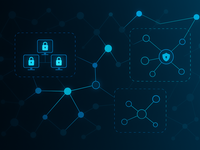
Cloud
The Quantum Shift: Why Cloud Customers Need a Post-Quantum Strategy Today
January 23, 2026
Read more

Cloud
January 23, 2026
Read more


AI Governance
January 6, 2026
Read more

Blog
12 min read
December 31, 2025
Read more

Cyber Risk Advisory
December 29, 2025
Read more


Compliance
December 17, 2025
Read more

Cyber Risk Advisory
December 15, 2025
Read more
